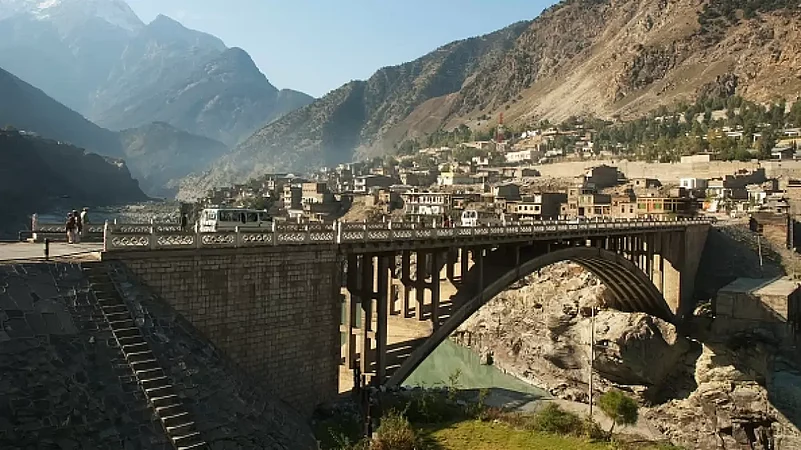Will water wars be the next frontier between the long-drawn India-Pakistan tussle? There has been quibbling over the Indus Waters Agreement over the years, but by and large the 1960 agreement has been held up as a model of cooperation.
At the time of its signing by Prime Minister Pandit Jawaharlal Nehru and Pakistani President and military dictator Ayub Khan, it was regarded by none other than US President Dwight Eisenhower as the “one bright spot…in a very depressing world picture that we see so often”. The treaty has since survived three full-scale wars between India and Pakistan. But this could change in the future as the New Delhi has upped the ante by indicating that its wants to modify the treaty.
On January 25, India sent out a notice to Pakistan calling for modification of a specific clause of the Indus Water Treaty. The concerned article is Article X11(3) that deals with the final provisions of the treaty regarding disputes. It must be noted this is not a call to abrogate the treaty though many hardliners —including ministers in the Narendra Modi government— had said after Uri terrorist attack in 2016 that the treaty should be scrapped. It has not come to that point yet, but New Delhi has certainly escalated the situation by asking for a review from Islamabad. Pakistan has 90 days to respond. There has been no word so far. The next move by New Delhi will depend on Islamabad’s response.
How Indus Water Treaty works?
The Indus agreement was brokered by the World Bank and took nine years of negotiations. The river waters were divided between the two neighbours. Waters of the three eastern rivers of Ravi, Beas, and Sutlej were awarded to India as per the treaty and waters of three western rivers of Indus, Jhelum, and Chenab were awarded to Pakistan. India as an upper riparian state had to maintain the water flow of the western rivers. The World Bank is also a signatory to the treaty.
The treaty set up a Permanent Indus Commission headed by a commissioner appointed by both India and Pakistan to look into the workings of the agreement through the exchange of information and data. The treaty sets out distinct procedures to handle issues that may arise between the two countries. According to the World Bank, “questions” are handled by the Commission; “differences” are to be resolved by a Neutral Expert; and “disputes” are referred to a seven-member arbitral tribunal called the “Court of Arbitration” .
As a signatory to the treaty, the World Bank’s role is limited and procedural. In particular, its role in relation to “differences” and “disputes” is to simply fulfil certain roles in the context of Neutral Expert or Court of Arbitration proceedings when requested by either or both of the parties.
The concerns of India and Pakistan
India and Pakistan have been bickering over the Kishanganga —known as Neelum in Pakistan— and Ratle hydropower projects in the Union Territory of Jammu and Kashmir since 1988. These are located on western rivers awarded to Pakistan. Islamabad has since the beginning raised objections to both these projects on fears that they will reduce the flow of water on its side. Besides, both are on the western rivers that are Pakistan’s.
The 330 megawatts Kishenganga plant was inaugurated in 2018, while the much bigger 850 megawatts Ratle hydroelectric project is under construction.
In 2015, India requested Pakistan to appoint a neutral expert to examine the Kishanganga and Ratle hydropower projects and reveal their technical flaws. But by 2016, Pakistan proposed that an arbitration court should adjudicate. The Indus Waters Agreement lays down a graded response to differences. Initially, the two countries must try to resolve the problem bilaterally. The next step is to go to a neutral observer and if that too does not work out, the matter can be taken up before the court of arbitration at The Hague.
India has accused Pakistan of violating the “graded mechanism” of dispute settlement envisaged under Article IX of the Indus Waters Treaty. New Delhi has objected to two parallel processes on one issue. India says that Pakistan had given short shrift to the agreement by going for arbitration.
‘Blood and water’ can’t flow together: PM Modi
Considering the current state of India-Pakistan relations, chances of an amicable settlement appear remote. Ever since the 2016 Uri attack, there have been calls for a rethink on the Indus Water Treaty. Prime Minister Narendra Modi himself echoed the hardline view in 2016 by saying that “blood and water’” cannot flow together. Though there was sabre-rattling from the Indian side, no move was initiated to review or scrap the agreement. India had decided in 2016 not to have regular Indus Waters exchanges between the commissioners.
After the August 2019 scrapping of Jammu and Kashmir’s special status, Pakistan’s then-Prime Minister Imran Khan also went on warpath as he tried to muster international opinion against India over Kashmir. India and Pakistan ties remained on hold. But in May 2022, a meeting of the Indus valley commission was held in New Delhi, leading to hopes of more such bilateral engagements. That meeting obviously did not help in resolving disputes over water.
The Modi government’s decision to raise the tempo on the treaty is in keeping with its hardnosed muscular foreign policy that is much appreciated by its domestic constituency especially ahead of the 2024 national elections. It remains to be seen if this is just posturing or if the government means to carry it to a logical conclusion.



























